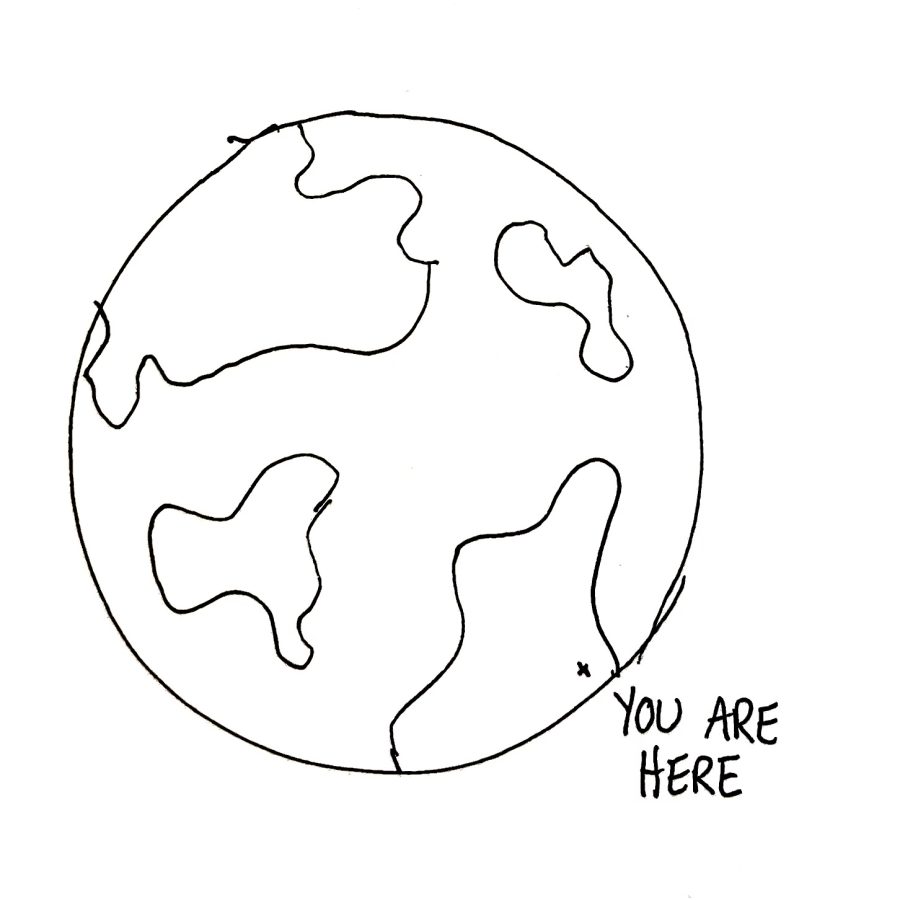NPC is a stupid insult
NPC = Non-player character, a video game term has become an insult of choice
To call someone an NPC draws on fears of insignificance. Art by the author.
Mar 31, 2023
Like any other art form, insults can be loud and abrasive or subtle and nuanced. They can target either internal and external qualities and have unbelievable stamina. I believe the sheer negativity of direct insults, delivered with malice and intended to emotionally harm, give them an initial false appearance of truth. That’s the power of negativity; ten compliments cower in the shadow of one insult.
I’ve heard the phrase “NPC” used to describe real people a lot lately. On one hand, it reminds me that the lines separating reality from simulacra are getting finer and finer. On the other, I find it fascinating to use video game dialect as a nomenclature, a system of naming. When we call others NPCs, we’re automatically placing ourselves in the “main character” category. Hypocritical maybe, but necessary.
In a sentence, an NPC (non-player character) describes characters in video games who have a programmed set of lines and actions. The main character meets countless NPCs along their journey during missions; the NPC says their couple lines and leaves the main character to do main character things. NPCs don’t really do anything. To call someone an NPC, then, implies a lack of depth, a lack of things that make a person interesting. In a word, boring.
In a way, calling someone an NPC feels worse than identifying a negative quality; it’s centralizing the lack of qualities and choosing to insult that lack. It signals an absence of desire to get to know someone, which is supremely hurtful. For example: I would call someone an NPC if I wanted to say there was nothing to them; I have no desire to get to know this person I’m calling an NPC and no one else should.
I think the first time I heard it was from Trump supporters calling liberals NPCs. In one way, it’s simplification; it’s the label we write on the box in which we confine people different from us. Indirectly, it’s also a celebration of conservative complexity by reducing liberals to being thoughtless, shallow. The term doesn’t have to be political, and I might argue that it’s not. I just find this to be a good illustration.
Calling someone an NPC attempts to establish an in-group and an out-group pertaining to one of the most fundamental human values: thinking we’re interesting. The labeler who assigns NPC to someone attempts to put the labeled person at the base level of the hierarchy with all the others they deem unimportant. It takes someone who thinks of themselves as interesting to call someone else uninteresting.
Individuality is celebrated in Western tradition. “Be you,” “be the change,” “live your best life” and its ugly twin sibling, “be your best you,” along with many Pinterest platitudes all suggest that the self exists and should be revered for existing. From what I’ve read of eastern religions (not a lot), I found that the individual being, the ego, is seen as an obstacle to meaning. Life then becomes a mission of continually losing the self so that meaning might find us. I bring this up to show that the self and its mastery are values to which we’ve at least been exposed to and likely have internalized.
I think it’s very human to want a self to hold onto, to distinguish oneself from the fleshy multitudes. Being called an NPC strips one of the qualities separating one from that mass of humanity. I think labeling someone an NPC demonstrates a strong desire to differentiate, to not be labeled one, to (dare I say it) live one’s best life.
One’s choice of insult reveals a lot about them. If you choose boringness as an insult, you probably consider yourself an interesting person. If you call someone mean, attached to it is a suggestion that you’re kind and, for that reason, qualified to comment on someone’s meanness. Someone quick to negatively comment on physical appearance surely cares about appearance and would just as surely take a comment on their own personal appearance to heart.
I didn’t want to write this next section because it seems obvious, but I can’t avoid it any longer. Every human being is only one, and, to any given person, there is a mountain of other people that mainly serve as filler. That’s no reason not to treat them all with respect, but it bears being noted. Some of those others will three-dimensionalize and become friends, significant others, mortal enemies. But I am one of the many others to many people, most people. Everyone is their own North Star, around which all others spin.
Being is absolutely relative, limited to the individual experience; to call someone an NPC is redundant. In a way, it’s a universal truth. Any given person goes through their life as “the main character,” which would make every other person an NPC. The reason I’m devoting a column to the term is because it taps into a doubt, a very convincing and believable insecurity: it makes us question whether we matter as much as the individual state allows us to believe.
As hurtful as it might be to be called an NPC, I also wouldn’t be thrilled about being called a main character. It would reaffirm a hope I often wish was true, and might even temporarily keep the doubt demon away. But it would ultimately remind me that there are people who don’t know me and never will, let alone know that I think about these things.
Rather than exhaust myself with trying to demonstrate the relativity of individual importance, I want to end with an affirmation that the connections we have made are more important than the much larger number of connections we’ll never make. I could spend a lifetime running to shake every hand, earn every smile, have every conversation, dry every tear. I’ll walk in that direction at my own pace; I’ll saunter. As I go, I’d rather be called quick, thoughtful, funny, handsome and good at sports by those I love, those few magnificent specks of human infinitude.














Laura • Apr 1, 2023 at 7:34 am
I love the North Star reference!